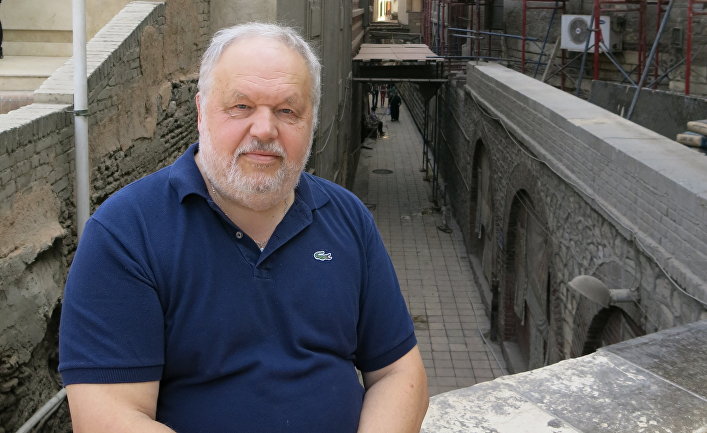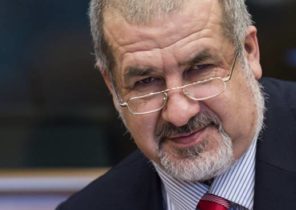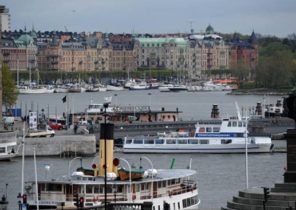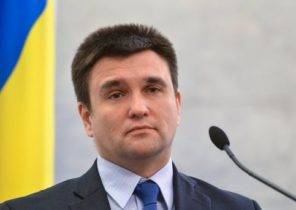
A quarter century ago in the Dutch city of Maastricht, the 12 member countries of the EEC signed the Treaty establishing the European Union. EEC (European economic community) became the EU, which took its participants on a fundamentally new level of integration. This unique project was primarily political: the aim was to unite the European nation-States into a single Federation, a kind of United States of Europe. And, it should be noted, at first the project met with success: the EU has successfully developed, in its composition were adopted by the States of southern and Eastern Europe introduced the single European currency, the Euro, significantly increased the international prestige of the new Association.
According to the Maastricht Treaty has expanded the powers of the European Parliament in Strasbourg, introduced the term “EU citizen”. Also approved the principle of a common foreign policy and security, laid the foundations of a common policy in the field of justice, immigration and policing. The Treaty proclaimed the transition to a single European currency, the Euro, which was introduced into circulation in 2002. Future Eurozone members were obliged to fulfill the “Maastricht criteria”, they lost their “monetary sovereignty” and further, the right to set the size of the budget deficit.
In October 2007, in Lisbon signed a Treaty to reform the EU to complement and develop the ideas of Maastricht. In fact the Lisbon Treaty was “ersatz Constitution” of the EU, he finalized complex legal and bureaucratic structure that characterizes today’s EU. The Treaty of Lisbon — a forced act, a cunning trick of the Eurocrats, his appearance is due to the failure of the EU Constitution in referendums in France and the Netherlands and the need to ensure the functioning of the European Union in terms of enlargement from 15 to 27 member countries. In particular, the Lisbon Treaty prescribed the famous paragraph 50, which provides for the conditions and the procedure of exit from the EU.
Today, a quarter century later, we have to acknowledge serious difficulties with the implementation of an ambitious European project: divisive within the EU is increasing, countries with different levels of economic, cultural and political development to integrate failed. Everywhere he raises his head and nationalism right-wing populism. The South of Europe are dissatisfied with the dominance of Germany, and the rigid rules of the financial policies imposed by Brussels. A severe blow to the European project caused a referendum in the UK in which the majority of Britons favoured leaving the EU.
The first signal of the current European crisis was made in 2010, when on the verge of bankruptcy was Greece. The second phase was the migration crisis of 2015, when the background of the refugee wave in the conflict included the national interests of almost all countries of the European Union. But the biggest test for the EU has been a referendum on Brexia in the UK, which marked the beginning of the first “divorce” in the history of the European Union.
Citizens of the UK had to carefully weigh the pros and cons of such decision (and economic disadvantages were clearly more), but the key moment was the rise of national consciousness and unwillingness to submit to the archaic, bureaucratic leadership of the EU in Brussels. The impression that the process of sovereignization launched in all countries and regions of Europe. Stop it will only exit on political arena of diehard patriots of Europe that will breathe new life into the fading of the European project.
The Eurocrats have created a cumbersome bureaucratic structure that is accountable with herself and is not associated directly with the will of European citizens. This is not something dreamed of “founding fathers” of a United Europe — Robert Schumann and Jean Monnet, Charles de Gaulle and Konrad Adenauer.
The headquarters of the EU in Brussels has grown to epic for Europe sizes. Only the Central bodies, institutions and agencies of the European Union employs more than 46 thousand people. They print thousands of laws and regulations, many of which are simply absurd.
Do not stand the test of life and financial ideas of Maastricht, founded in 1992, the then German Finance Minister Theo Weigel: the maximum budget deficit of 3%, debt — 60%. These criteria are not able to perform not only the weaker economies of southern Europe, but even countries such as France.
With the current economic stagnation in the Eurozone is literally bursting at the seams: the countries of southern Europe are not able to live in this “straitjacket”. Last weekend at a mini-summit in Lisbon, the countries of southern Europe (Spain, Italy, France, Greece, Cyprus and Malta) in the sharp form has demanded easing of tough budget rules and increase spending to stimulate economic growth. But all of these countries at the time, ratified the Maastricht Treaty.
Europe is divided not only economically: growing contradictions on a number of issues, including illegal migration, globalization and anti-Russian sanctions. In the EU countries, growing nationalism and right-wing populism. Meanwhile, the world around mainland Europe has changed dramatically: it is not the same that in the days of Maastricht. UK began the process of withdrawal from the EU, in the US, the new administration welcomes Brakcet and calls into question the transatlantic cooperation and NATO, jihadists from the Middle East make a daring terrorist attacks in European cities. With all these circumstances in Brussels decided to mark the current date without the pump: Brakcet, anti-European rhetoric of Donald trump, refugee crisis, the financial problems of southern Europe — all this gives the EU reason for optimism.
So, what remains in the “dry residue”? 25 years later the objectives set out in the Maastricht Treaty-not done: did not achieve the budget, fiscal and social integration of the countries of the European Union created economic government of the Eurozone. European governments are paralyzed financial and refugee crisis, the growth of eurosceptic sentiment. And what is most dangerous, there is no strategy in terms of reformatting the world order. Current EU leaders look like political dwarfs in comparison with the European leaders of the second half of the 20th century. But the EU still has considerable potential: its population (still subject to the UK) is around 500 million people, the economic potential is about 20% of world GDP. However, the EU has a very serious job to maintain a unified European space, a worthy place in the world, a high level of prosperity and social gains.







